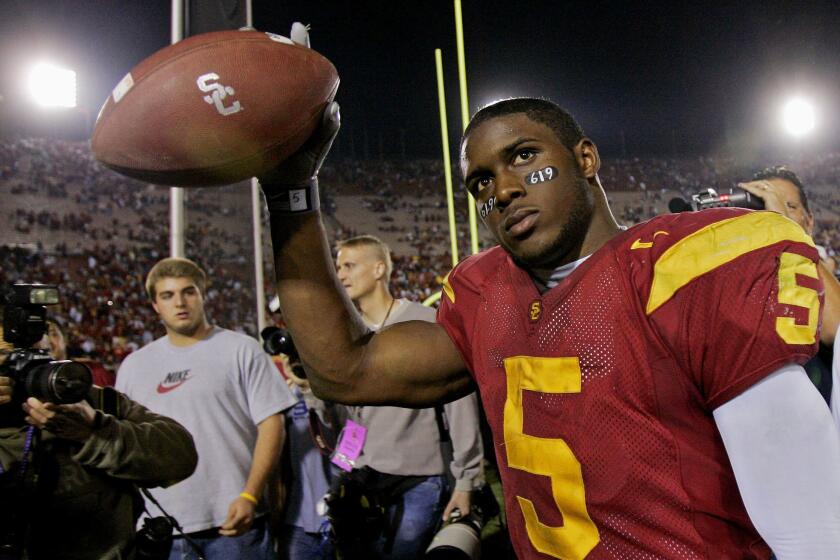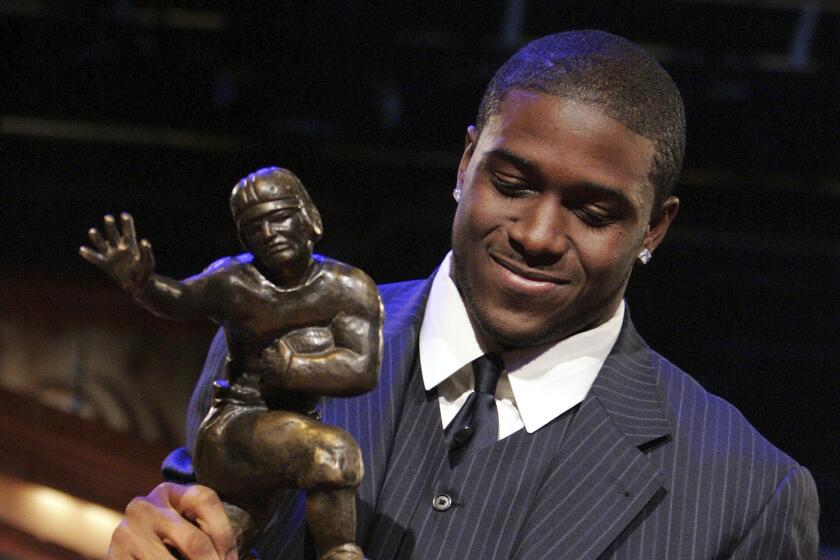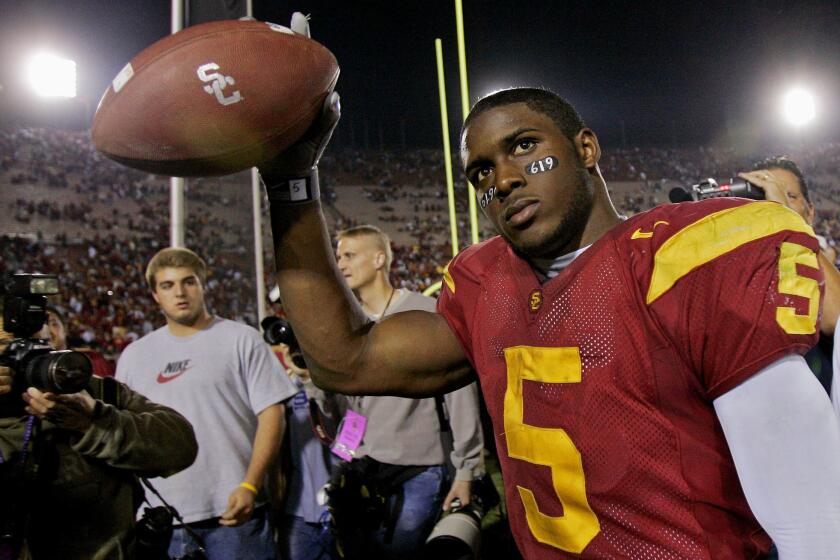Judge comes close to declaring mistrial in Todd McNair’s defamation trial against NCAA; juror is replaced
The buzzer sounded above the door to the jury room in the stuffy fifth-floor courtroom at the Stanley Mosk Courthouse at 9:34 a.m. Thursday.
The nine women and three men entering the fourth day of deliberations in former USC assistant football coach Todd McNair’s defamation trial against the NCAA had a question.
“This,” Los Angeles County Superior Court Judge Frederick Shaller said, “is a sticky wicket.”
The question opened a day filled with drama and waiting, but ultimately no resolution in the long-running case.
In the note, one of the jurors asked to be excused because she isn’t conversant in English.
“I do not believe I know enough English to understand this court case,” the note quoted the woman as saying. “Deliberations have taken long because I fail to understand the details of the evidence.”
After Shaller and attorneys from both sides questioned the woman in the judge’s chambers, he decided to keep her on the jury.
About 15 minutes later, the buzzer sounded again. The clerk handed the latest note to Shaller. The judge read it, looked up at the ceiling and let out a long sigh. For the second time in three days, the jury told him they were deadlocked.
Loud talking drifted from the jury room as they filed out.
“They probably think they’re going home,” Shaller said.
The foreman told the judge the jury couldn’t get past the third of nine questions on the verdict form. The question concerned whether statements about McNair in reports by the NCAA infractions committee and appeals committee in connection with the Reggie Bush extra benefits scandal were false.
The jury split 8-4; nine votes are needed to move forward. It’s unclear which side the jury favored.
“I’m getting the sense people have their views and I’m not sure we’re going to get to nine,” the foreman told the judge.
Shaller said he leaned toward declaring a mistrial if the jury couldn’t reach a verdict by 2 p.m. Another trial in the case that’s lingered for almost seven years seemed inevitable.
McNair sat alone on a narrow bench in the hallway, his wife Lynette in front of him, staring at the ground and speaking softly.
But after the lunch break, one of McNair’s attorneys, Scott Carr, expressed concern the juror struggling with English hadn’t actively participated in deliberations and the jury deadlocked so quickly after Shaller decided to keep the juror. As attorneys discussed the matter with the judge, the buzzer sounded for a third time.
After reading the message, Shaller threw his head back and laughed.
The foreman wanted to know if the other juror could have an interpreter because “it’s hard to have meaningful dialogue about the details of the case.” The judge and attorneys retreated to his chambers once again, this time to talk with the foreman.
Sitting in the first row, McNair put an arm around his wife and pulled her close.
Another 15 minutes passed before Shaller called the jury into the courtroom.
“I feel like we’re a family,” the judge said, “and I hate to break apart a family.”
Shaller excused the juror struggling to understand English and replaced her with an alternate, also a woman, waiting outside.
Then came the difficult part. Shaller read instructions for the jury.
“Now please return to the jury room,” the judge said, “and start your deliberations from the beginning.”
Some of the jurors nodded their heads. The group filed back into the jury room and started over.
Twitter: @nathanfenno
More to Read
Go beyond the scoreboard
Get the latest on L.A.'s teams in the daily Sports Report newsletter.
You may occasionally receive promotional content from the Los Angeles Times.







